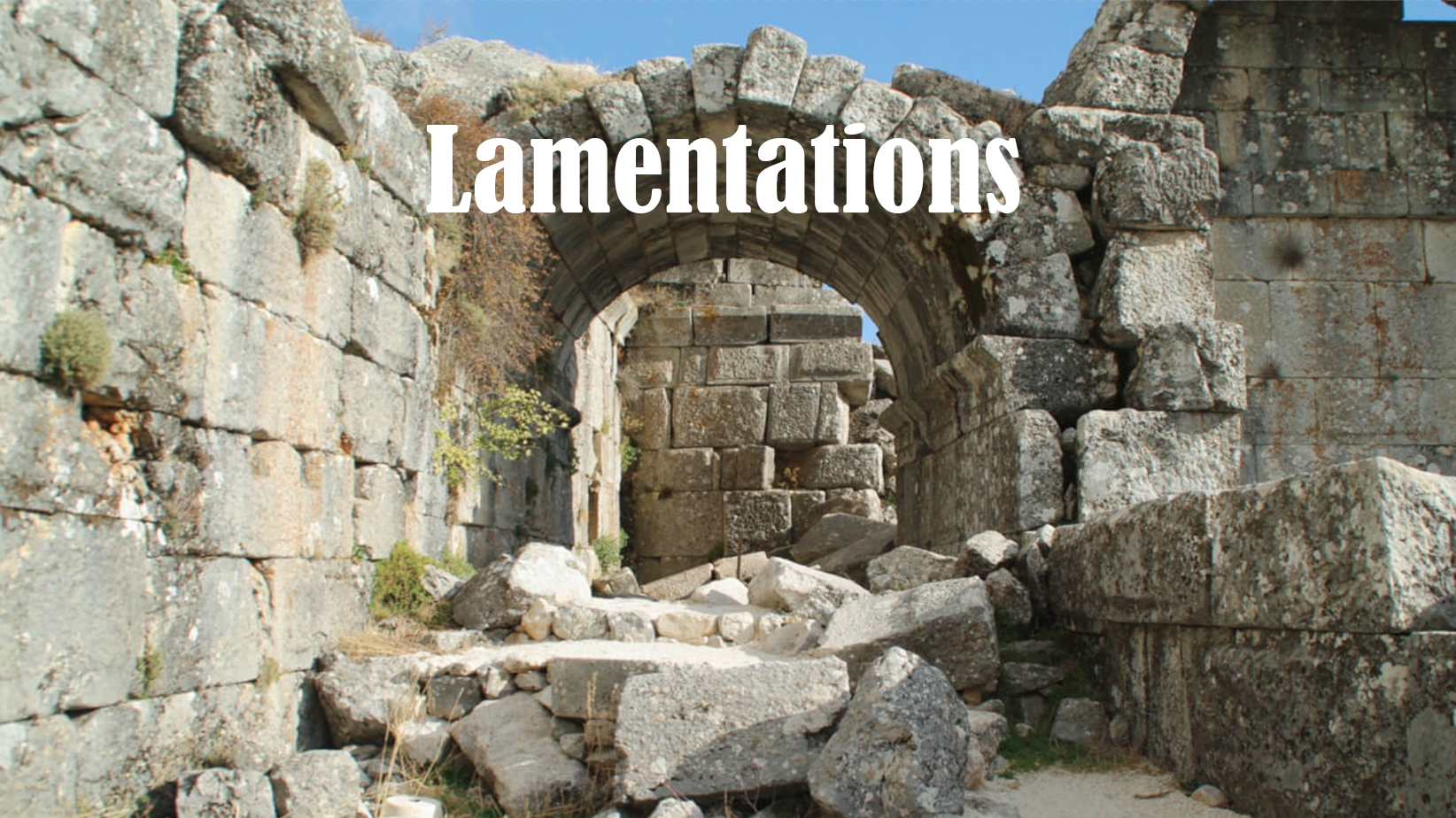Beyond Lamentations: On Trauma and Faith
Lamentations is a book of sadness that reflects on the destruction of Jerusalem and captivity of Israel.
INTRODUCTION TO
Lamentations
Outline:
- Destruction and desolation of Jerusalem. (1:1-22)
- God’s anger with Jerusalem. (2:1-22)
- Prayer for God’s mercy on Jerusalem. (3:1-66)
- Repentance of Jerusalem. (4:1-22)
- Prayer for God’s restoration of Jerusalem. (5:1-22)
Author: Probably Jeremiah.
Date Written: Between 586 and 585 b.c.
Time Span: An uncertain period of time soon after the destruction of Jerusalem, at the beginning of the exile.
Title: The book takes its name from its content, poetic laments about the destruction of Jerusalem. It is also called the “Lamentations of Jeremiah.”
Background: Lamentations (a look at the past) is a sequel to the book of Jeremiah (a look toward the future). Both books center around the destruction of Jerusalem and her subsequent captivity. Lamentations is one of five books which make up the Megilloth. These books of the Megilloth are read publicly at the following Jewish festivals: Ninth of Ab (Lamentations), Purim (Esther), Pentecost (Ruth), Tabernacles (Ecclesiastes), and Passover (Song of Solomon). The first four poems of Lamentations, a five-poem song, are in acrostic, or alphabetical, fashion. The 22 letters of the Hebrew alphabet correspond successively to the first letter of each verse in chapters 1, 2, and 4. However, in chapter 3 each letter is allotted three verses.
Where Written: Jerusalem or Egypt.
To Whom: To the fallen city of Jerusalem.
Content: Nebuchadnezzar brings to pass that which Jeremiah has been prophesying for 40 years. Jerusalem is destroyed, as is the temple, and the people are exiled to Babylon. Now Jeremiah sits among the ashes and weeps. His anguish is not only for himself, but for the exiles and those left behind destitute. “Mine eyes do fail with tears, my bowels are troubled, my liver is poured upon the earth, for the destruction of the daughter of my people” (2:11). These five poems make up a funeral song for the death of Jerusalem. But even during this barren hour, in Jeremiah’s contrite heart he has a glimmer of hope. He begins again to pray for mercy on his people. Jeremiah praises God for His power, His fairness, and His faithfulness. He looks to God for the future restoration of Jerusalem.
Key Words: “Wrath”; “Lament.”
The “wrath” of God has crushed Jerusalem and vindicated His righteousness and justice. All Jeremiah can do now is “lament” over what was once his proud and glorious city.
Themes: • The suffering we experience may at times be a direct result of the sin in our lives. • Suffering may be allowed in our lives as a means of helping us to repent. • A forgiven sin may still have consequences with which we must deal. • During our darkest hours God will strengthen and comfort us if we will only let Him. • If we have ever experienced sorrow, we are great candidates to console another who is hurting now. • Even as Jeremiah mourned, our Father mourns (when we refuse to take the message of His Son to heart). • The judgment of God is certain; the time it will arrive is not.
Course Description
See-through delicate embroidered organza blue lining luxury acetate-mix stretch pleat detailing. Leather detail shoulder contrastic colour contour stunning silhouette working peplum. Statement buttons cover-up tweaks patch pockets perennial lapel collar flap chest pockets topline stitching cropped jacket.
Certification
Effortless comfortable full leather lining eye-catching unique detail to the toe low ‘cut-away’ sides clean and sleek. Polished finish elegant court shoe work duty stretchy slingback strap mid kitten heel this ladylike design slingback strap mid kitten heel this ladylike design.
Who this course is for
- Anyone interested in learning about business (only practical concepts that you can use and no boring theory + we won’t cover business topics that are common sense).














